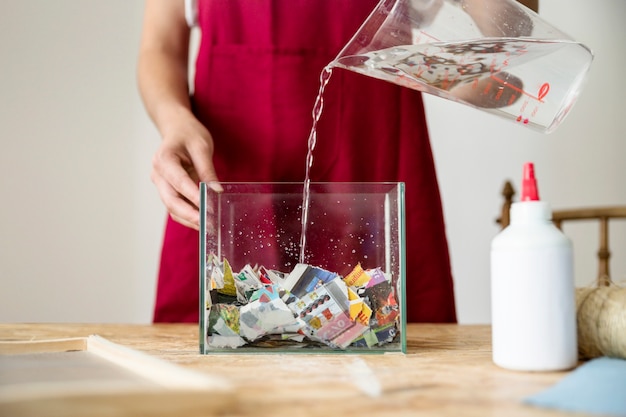
### Save on Mouthwash
Looking for a budget-friendly yet effective way to keep your mouth clean and healthy? Making your own natural mouthwash is a great way to save money while taking care of your teeth, gums, and overall oral health. Homemade mouthwashes are simple to prepare, cost-effective, and just as efficient as store-bought ones. Plus, they’re free from harsh chemicals, making them a healthier alternative.
—
### Why Choose Natural Mouthwash?
While mouthwash is an important part of good dental care, many commercial options contain potentially harmful ingredients like thymol, which has been linked to health concerns. By creating your own mouthwash at home, you not only cut costs but also avoid exposing your body to unnecessary chemicals.
—
### DIY Natural Mouthwash Recipes
**Turmeric Mouthwash**
Turmeric has proven to be surprisingly effective for oral health. Studies show that curcumin, the active compound in turmeric, helps prevent plaque buildup and even fights precancerous and oral cancer cells.
– Mix 10 mg of turmeric extract with 100 ml of water.
– Add a few drops of peppermint oil for freshness.
For inflamed gums or a toothache, dissolve turmeric powder in warm water. Worried about staining your teeth? Rinse with a mix of baking soda and water twice a week to keep them white and shiny.
—
**Disinfectant Mouthwash**
Combine 1 cup of water with 2 tablespoons of apple cider vinegar. Swish this antiseptic mix in your mouth to tackle plaque and bad breath.
—
**Herbal Mouthwash**
For a natural herbal option, boil 2 cups of water with ½ ounce of whole cloves, 1 ounce of Oregon grape root, and some dried rosemary. Let the mixture infuse in a jar, strain it, and store the liquid in the fridge for regular use.
—
**Antibacterial Mouthwash**
This recipe combines antifungal and antibacterial properties. Mix:
– ½ cup of water
– 2 teaspoons of baking soda
– 2 drops each of tea tree oil and peppermint oil
This blend is affordable, natural, and chemical-free.
—
**Antiseptic Mouthwash**
Neem oil, known for its detoxifying properties, can help fight plaque and gingivitis. To make an antiseptic rinse:
– Mix 2 tablespoons of baking soda with ½ cup of warm water.
– Add 1 tablespoon of neem oil and 2 drops of peppermint oil.
For a final touch, include a small amount of thyme oil, which contains thymol—an antibacterial ingredient.
—
**Anti-Cavity Mouthwash**
Eucalyptus oil can help prevent tooth decay with its antibacterial properties. To make this mouthwash:
– Add 5–7 drops of eucalyptus oil to a strong herbal infusion of peppermint, sage, and echinacea leaves.
– Mix in 2 tablespoons of myrrh gum extract and 8–12 drops of mint extract.
Store the solution in a mason jar for a few days for best results.
—
**Tea Tree and Baking Soda Mouthwash**
Tea tree oil is packed with antifungal, antiviral, and antibacterial benefits. This recipe also includes aloe vera for its healing properties.
– Mix ¼ cup of distilled water with 1 tablespoon of baking soda and 2–4 drops of tea tree oil.
– Add 10 drops of peppermint oil and ½ cup of aloe vera juice.
Swish for 1–2 minutes, but don’t swallow. It’s great for soothing gum pain and fighting bad breath.
—
**Cinnamon and Clove Oil Mouthwash**
Clove and cinnamon oils are effective in freshening breath and preventing cavities. Simply combine distilled water with 10–15 drops of clove oil and cinnamon oil. This mouthwash can be stored for long-term use.
—
**Simple Organic Mouthwash**
A basic but effective recipe includes:
– 2 tablespoons of apple cider vinegar
– 1 cup of saltwater
– A drop or two of vanilla essential oil (an antioxidant)
Store this mix and use as needed for a quick and natural cleanse.
—
### Other Tips for Saving on Mouthwash
If you prefer store-bought options, you can dilute them to make the bottle last longer without losing effectiveness. But remember, proper oral hygiene habits like brushing twice daily, flossing, and regular dentist visits play a vital role in maintaining dental health.
—
### Conclusion
Mouthwash is an invaluable part of oral hygiene, helping to freshen breath and prevent common dental issues. Homemade options not only save money but also reduce exposure to harmful chemicals. They offer numerous benefits, including:
– Cost savings
– Reduced chemical intake
– Protection against gum disease, gingivitis, and cavities
– Antibacterial, antiseptic, antifungal, and antiviral properties
Many of these natural recipes utilize ingredients like turmeric, peppermint, and neem, known for their healing and anti-inflammatory properties. In combination with brushing and regular dental checkups, natural mouthwashes can significantly improve your oral health while being kinder to your wallet and overall well-being.